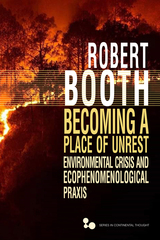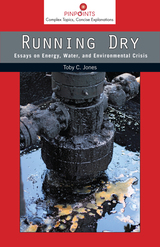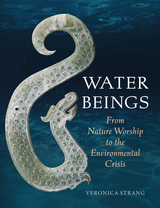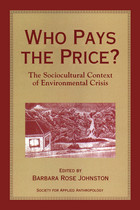

With a new foreword by Lynton Keith Caldwell
In Managing the Environmental Crisis William R. Mangun and Daniel H. Henning provide a balanced and comprehensive guide to the management of complex environmental and natural resource policy issues. Taking into account new developments, trends, and issues that have arisen in recent years, the authors begin with the recognition, often overlooked, that it is not the environment that needs to be managed but human action relating to the environment.
The authors review issues associated with a range of environmental policy concerns, including energy considerations, renewable and non renewable resource management, pollution control, wilderness management, and urban and regional policy. The history of these issues, recent actions pertaining to their management, difficulties associated with their continued presence, and the consequences of a failure to address these concerns are explored. Though focused on specific political issues, Mangun and Henning direct their attention to two large-scale trends—globalization and the political polarization of the environmental movement. At the level of the decision-making process, the incorporation of values—specifically addressed from multicultural and cross-disciplinary perspectives—is also discussed. International in scope, the book provides descriptions of the roles of both governmental and nongovernmental organizations in the formulations and implementation of national and global environmental policy.
This thoroughly revised second edition discusses various successes in the arenas of environmental cooperation and management strategy while pointing to the new challenges that have emerged in the last decade.


Early human relationships with water were expressed through beliefs in serpentine aquatic deities: rainbow-colored, feathered or horned serpents, giant anacondas, and dragons. Representing the powers of water, these beings were bringers of life and sustenance, world creators, ancestors, guardian spirits, and lawmakers. Worshipped and appeased, they embodied people’s respect for water and its vital role in sustaining all living things. Yet today, though we still recognize that “water is life,” fresh- and saltwater ecosystems have been critically compromised by human activities. This major study of water beings and what has happened to them in different cultural and historical contexts demonstrates how and why some—but not all—societies have moved from worshipping water to wreaking havoc upon it and asks what we can do to turn the tide.

Drawing from a Society for Applied Anthropology study on human rights and the environment, Who Pays the Price? provides a detailed look at the human experience of environmental crisis. The issues examined span the globe -- loss of land and access to critical resources; contamination of air, water and soil; exposure to radiation, toxic chemicals, and other hazardous wastes. Topics considered in-depth include:
- human rights and environmental degradation
- nation-state struggles over indigenous rights
- rights abuse accompanying resource extraction, weapons production, and tourism development
- environmental racism, gender bias, and multinational industry double standards
- social justice environmentalism
READERS
Browse our collection.
PUBLISHERS
See BiblioVault's publisher services.
STUDENT SERVICES
Files for college accessibility offices.
UChicago Accessibility Resources
home | accessibility | search | about | contact us
BiblioVault ® 2001 - 2024
The University of Chicago Press









